Dupa plasarea solicitării de comandă, in sectiunea Istoric puteti vedea cate solicitări de comandă mai avem de procesat inaintea dumneavoastra
Program de lucru: Luni - Vineri 9:00 - 18:00, pauza 13:00 - 14:00.
Se efectueaza lucrari de mentenanta la site si pot aparea erori. In cazul in care intampinati erori va rugam sa reincercati mai tarziu.
Ridicarea personala este disponibila pentru comenzile achitate in avans. Se pot ridica dupa ce sunt pregatite.
No products
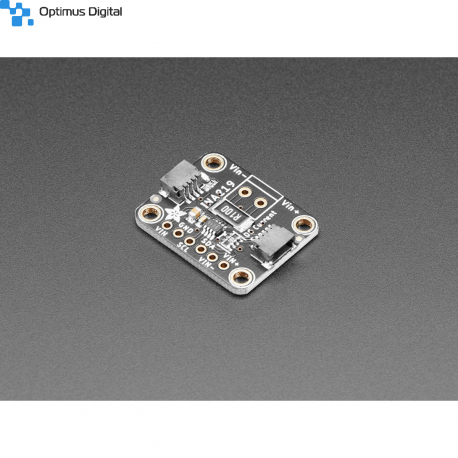 View larger
View larger
INA219 High Side DC Current Sensor Breakout - 26V ±3.2A Max
P904
New product
This breakout board will solve all your power-monitoring problems.
See description for more details about the product.
Add to cart now!
1 Item
Warning: Last items in stock!
- Write a review
- Remove this product from my favorite's list.
- Add this product to my list of favorites.
More info
Description
This breakout board will solve all your power-monitoring problems. Instead of struggling with two multimeters, you can just use the handy INA219B chip on this breakout to both measure both the high side voltage and DC current draw over I2C with 1% precision.
Most current-measuring devices such as our current panel meter are only good for low side measuring. That means that unless you want to get a battery involved, you have to stick the measurement resistor between the target ground and true ground. This can cause problems with circuits since electronics tend to not like it when the ground references change and move with varying current draw. This chip is much smarter - it can handle high side current measuring, up to +26VDC, even though it is powered with 3 or 5V. It will also report back that high side voltage, which is great for tracking battery life or solar panels.
A precision amplifier measures the voltage across the 0.1 ohm, 1% sense resistor. Since the amplifier maximum input difference is ±320mV this means it can measure up to ±3.2 Amps. With the internal 12 bit ADC, the resolution at ±3.2A range is 0.8mA. With the internal gain set at the minimum of div8, the max current is ±400mA and the resolution is 0.1mA. Advanced hackers can remove the 0.1 ohm current sense resistor and replace it with their own to change the range (say a 0.01 ohm to measure up 32 Amps with a resolution of 8mA)
We include a 6-pin header (so you can easily attach this sensor to a breadboard) as well as a 3.5mm terminal plug so you can easily attach and detach your load.
Usage is simple. Power the sensor itself with 3 to 5VDC and connect the two I2C pins up to your microcontroller. Then connect your target power supply to VIN+ and the load to ground to VIN-. We have a detailed tutorial that will do all the gain, range and math for you - just plug and go with Arduino or CircuitPython!
As if that weren't enough, we've now also added SparkFun qwiic compatible STEMMA QT connectors for the I2C bus so you don't even need to solder the I2C and power lines. Just wire up to your favorite micro using a STEMMA QT adapter cable. The Stemma QT connectors also mean the INA219 can be used with our various associated accessories. QT Cable is not included.
Revision History
- As of January 29, 2021, we've updated this sensor to our STEMMA QT standard for sensors. There are now four mounting holes and two STEMMA QT connectors for plug-and-play connectivity! The schematic is the same; only the mechanical shape has changed.
- Datasheet, Fritzing, and EagleCAD PCB files available in the product tutorial
- 0.1 ohm 1% 2W current sense resistor
- Up to +26V target voltage
- Up to ±3.2A current measurement, with ±0.8mA resolution
- Note: The terminal block included with your product may be blue or black.
- This board/chip uses I2C 7-bit addresses 0x40, 0x41, 0x44, 0x45, selectable with jumpers
Product Dimensions: 25.6mm x 20.4mm x 4.7mm / 1.0" x 0.8" x 0.2"
Don't delay. Buy today.
Add to cart now!
Reviews
Customers who bought this product also bought:
-
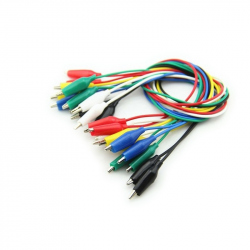
Colored...
Colored Alligator Clip Cable See description...
14,99 lei
-
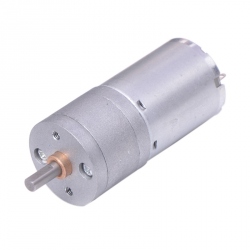
JGA25-370...
JGA25-370 (6V, 620 rpm) Gearmotor See...
49,00 lei
-
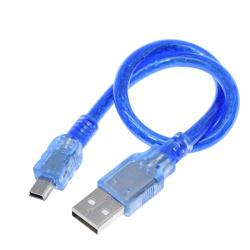
30 cm USB...
30 cm USB AM-B Mini Blue Cable for Arduino Nano...
4,37 lei
-
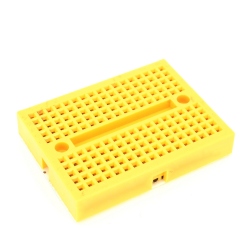
SYB-170...
Mini Breadboard colorful, ideal for small...
2,39 lei
-
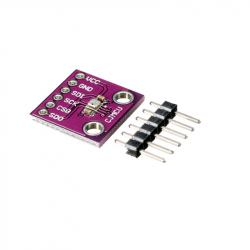
BME280...
BME280 Barometric Pressure Sensor Module See...
73,99 lei
-
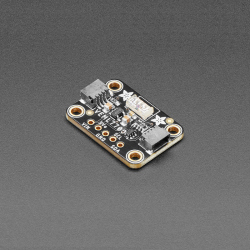
Adafruit...
Vishay has a lot of light sensors out there,...
44,99 lei
-
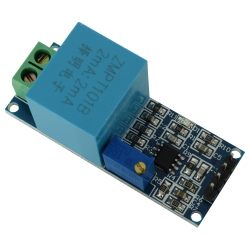
AC Voltage...
AC Voltage Sensor Module See description for...
13,00 lei
-
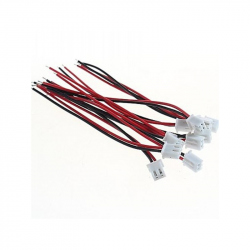
XH2.54 Cable...
XH2.54 Cable with Connector 2p (20 cm)
0,99 lei
-
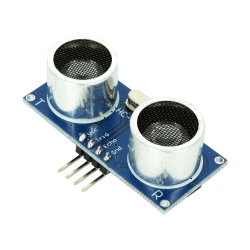
HC-SR04...
The HC-SR04 ultrasonic sensor is one of the...
6,49 lei
-
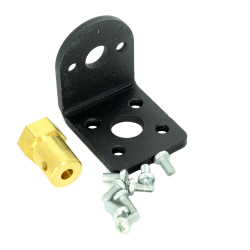
Black Gear...
This metal bracket is designed to support 25 mm...
19,99 lei





